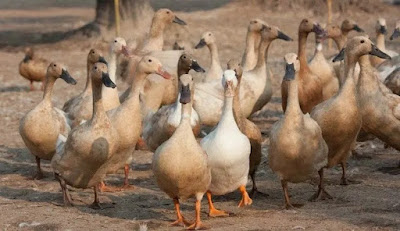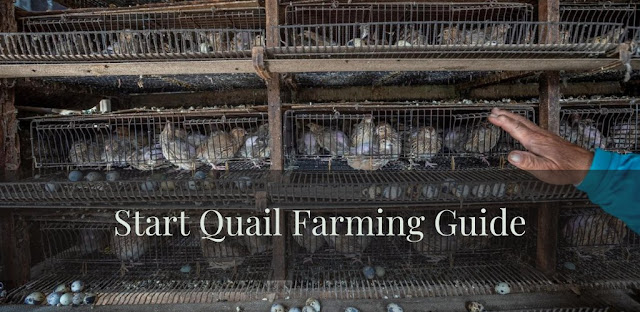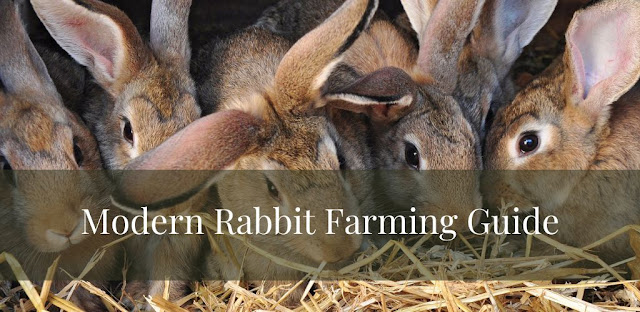Commercial Duck Farming For Beginners To Maximize Profit
This growth, along with increasing domestic and global demand makes duck farming an attractive option for those considering entering the industry.
Duck Raising
Duck Raising is a lucrative livestock industry because of its egg. Its most important product, the balut (boiled incubated duck's egg), is sold daily throughout the archipelago for its delicious flavor and nutritive value.
Duck raising is especially recommended in baytowns like those bordering the shores of Laguna de Bay, where there are abundant supplies of fresh water snails which make good duck food.
Ducks are generally raised for eggs but when snail food gets scarce, they are sold for meat.
Commercial duck farming is an intensive operation similar to chicken farming. Ducks are raised in cages that vary from open-sided naturally ventilated cages to fully enclosed, climate controlled tunnel ventilated houses. Therefore, commercial duck meat production is a specialized full-time business that requires a large investment of both time and money.
Advantages of raising ducks
There are many advantages to starting a duck farming business. In many countries, ducks rank next to chickens for meat and egg production.
- You can raise ducks either for commercial purposes or on a small scale for meat or egg production.
- You can even keep ducks in your own backyard with other birds or animals. Some of the important advantages of a duck farming business are briefly described here.
- Ducks need housing facilities that are cheaper, simple and uncomplicated. As a result housing costs are very less to set up a commercial duck farming business.
- Ducks are very hardy birds and they require less care or management. They can adapt themselves to almost all kinds of environmental conditions.
- They lay eggs either at night or in the morning. So you can collect their fresh eggs every morning :). And you can do your other chores for the rest of the day and you don't have to spend time caring for your ducks.
- You need relatively less space to raise ducks. Ducks have a relatively shorter incubation period and ducklings grow faster. Ducks grow so fast that you can give off artificial heat in 5 to 7 days. Although they will require a slightly longer heating period during the colder months.
- Ducks are very resistant to common poultry diseases.
- You can feed your ducks with a wide variety of foods. Duck's usual diet includes cassava, copra, corn, rice, fruits, and other foods that are cheap and easily available. They also have a natural tendency to forage on aquatic weeds, algae, green beans, fungi, earthworms, maggots, snails, various types of insects etc which directly reduces the cost of feeding.
- You can also use your ducks to control apple slugs or other harmful insects from your garden.
- Ducks have a lower mortality rate and they usually live longer than chickens. In terms of egg production, ducks lay eggs for a long period of time.
- Duck products such as eggs and meat are in great demand in local and international markets. So a commercial duck farming business can be a good source of income. There have been many successful breeders who have made big profits from their duck farming business.
- Duck farming can also be a source of stable employment. Unemployed educated youth can join this business and create their own job sources.
Raising Duck Guide for Profit App. provides an overview of: the duck industry; current production features; financial issues and critical planning and development considerations. This includes managing risks to bird welfare, the environment and biosecurity.
Raising Ducks in an Outdoor Pond
Ducks can be raised successfully in open ponds, provided there is a protected dry area nearby. Ducks reared in ponds can obtain some of their food from plants and animals in and around ponds, but additional feed may be required. In the tropics it is common to combine duck rearing in ponds with fish farming.
Ponds are filled with fish like Tilapia raised for human food. Duck droppings provide nutrients for the growth of animal and plant life that fish eat.
The number of ducks kept in ponds should be limited to prevent oversupply of nutrients and overgrowth of plant life which will cause oxygen depletion in the water and kill fish. Usually both ducks and fish are fed supplementary feed, which in commercial duck/fish farms is often a nutritionally complete pellet ration.
Useful Tips to Prevent Duck Disease
Some tips so that ducks do not contract the disease are as follows:
- Purchase stock from a trusted source or hatchery.
- Raise only healthy stock. Sick birds should be culled immediately and disposed of properly to avoid spreading infection.
- Feed the ducks a balanced ration. Ducks fed an unbalanced diet are susceptible to disease.
- Provide cool, fresh and clean drinking water at all times. Clean the sprinklers at least once a day. Highly polluted water is detrimental to the health of the ducks and can affect overall performance.
- Provide a clean and dry feeder at all times. Wet feeders are susceptible to the growth of yeast, harmful bacteria and harmful fungi which are sources of mycotoxins such as aflatoxins, ochratoxins and related toxins. Because ducks are very susceptible to aflatoxicosis, the above activities should be strictly followed.
- Keep ducks of the same age in the same cage and give them the same medicine.
- Keep the farm and surroundings clean. Ducks should be provided with clean and dry litter and a well-drained area.
- Provide good ventilation with dry floors or litter. Do not hoard too many animals in the cage.
- Secure the building being constructed so that dogs, cats, mice, and other possible diseases cannot enter .
- Minimize activities that can cause stress to the ducks, thereby reducing their production.
- Burn or bury dead ducks as soon as possible to prevent flies from breeding on decaying material. This will also prevent the infected maggots from being eaten by the ducks.
- Prohibit delivery trucks and visitors from entering the production area as disease organisms often enter the farm by these delivery vehicles and/or visitors.
- Install trails in strategic locations to prevent the entry of infectious agents into the farm.
- Vaccinate ducks against duck cholera with polyvalent bacterin if available. Give antibiotic-vitamin-mineral supplements to suppress the buildup of bacterial infections and improve the health condition of the ducks.
- Spray animals with insecticide at least once a year to control fleas and mites, beetles and other arthropods that can irritate ducks.
- Avoid giving rotting food such as snails, shrimp, fish, and meat which may contain virulent microorganisms or their toxins.
- Ensure that the palay is free from insecticides that can cause adverse effects on the health and production of ducks.
- Maintain good production and health records.
- Strictly supervise the operation of the duck farm as a whole.
- Avoid mixing new stock into the flock. Quarantine newly arrived ducks for at least two weeks.
- Disease outbreaks can occur through the entry of sick ducks or carrier ducks.




.jpg)


Komentar
Posting Komentar